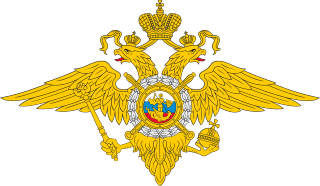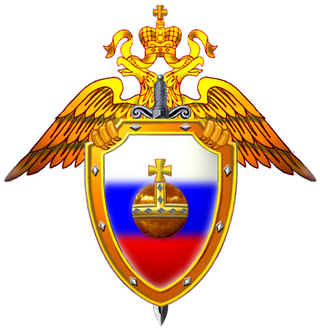
The politics of Russia take place in the framework of the federal semi-presidential republic of Russia. According to the Constitution of Russia, the President of Russia is head of state, and of a multi-party system with executive power exercised by the government, headed by the Prime Minister, who is appointed by the President with the parliament's approval. Legislative power is vested in the two houses of the Federal Assembly of the Russian Federation, while the President and the government issue numerous legally binding by-laws. Since the collapse of the Soviet Union at the end of 1991, Russia has seen serious challenges in its efforts to forge a political system to follow nearly seventy-five years of Soviet governance. For instance, leading figures in the legislative and executive branches have put forth opposing views of Russia's political direction and the governmental instruments that should be used to follow it. That conflict reached a climax in September and October 1993, when President Boris Yeltsin used military force to dissolve the parliament and called for new legislative elections. This event marked the end of Russia's first constitutional period, which was defined by the much-amended constitution adopted by the Supreme Soviet of the Russian Soviet Federative Socialist Republic in 1978. A new constitution, creating a strong presidency, was approved by referendum in December 1993.

The Ministry of Internal Affairs of the Russian Federation is the interior ministry of Russia.

This a survey of the postage stamps and postal history of the Russian Empire, the Soviet Union and the modern Russian Federation.
A People's Commissariat was a structure in the Soviet state from 1917–1946 which functioned as the central executive body in charge of managing a particular field of state activity or a separate sector of the national economy; analogue of the ministry. As a rule, a People's Commissariat was headed by a People's Commissar, which is part of the government – the Council of People's Commissars of the appropriate level.

The Ministry of the Russian Federation for Civil Defence, Emergency Situations and Elimination of Consequences of Natural Disasters, also known as the Ministry of Emergency Situations or internationally as EMERCOM, is a Russian government agency overseeing the civil emergency services in Russia.
Goskino USSR is the abbreviated name for the USSR State Committee for Cinematography in the Soviet Union. It was a central state directory body for Soviet film production.

The Academy of Sciences of the Soviet Union was the highest scientific institution of the Soviet Union from 1925 to 1991. It united the country's leading scientists and was subordinated directly to the Council of Ministers of the Soviet Union.

The government of Russia is the federal executive body of state power of the Russian Federation. The members of the government are the prime minister, the deputy prime ministers, and the federal ministers. It has its legal basis in the Constitution of the Russian Federation and the federal constitutional law "On the Government of the Russian Federation". The Apparatus of the Government of Russia is a governmental body which administrates the activities of the government.

The Ministry of Finance of the Union of Soviet Socialist Republics (USSR) (Russian: Министерство финансов СССР), formed on 15 March 1946, was one of the most important government offices in the Soviet Union. Until 1946 it was known as the People's Commissariat for Finance (Russian: Народный комиссариат финансов – Narodnyi komissariat finansov, or "Narkomfin"). Narkomfin, at the all-Union level, was established on 6 July 1923 after the signing of the Treaty on the Creation of the USSR, and was based upon the People's Commissariat for Finance of the Russian Soviet Federative Socialist Republic (RSFSR) formed in 1917. The Ministry was led by the Minister of Finance, prior to 1946 a Commissar, who was nominated by the Chairman of the Council of Ministers and then confirmed by the Presidium of the Supreme Soviet. The minister was a member of the Council of Ministers.

The Russian Soviet Federative Socialist Republic, previously known as the Russian Soviet Republic and the Russian Socialist Federative Soviet Republic, as well as being unofficially referred to as Soviet Russia, the Russian Federation, or simply Russia, was an independent federal socialist state from 1917 to 1922, and afterwards the largest and most populous Soviet socialist republic of the Soviet Union (USSR) from 1922 to 1991, until becoming a sovereign part of the Soviet Union with priority of Russian laws over Union-level legislation in 1990 and 1991, the last two years of the existence of the USSR. The Russian SFSR was composed of sixteen smaller constituent units of autonomous republics, five autonomous oblasts, ten autonomous okrugs, six krais and forty oblasts. Russians formed the largest ethnic group. The capital of the Russian SFSR and the USSR as a whole was Moscow and the other major urban centers included Leningrad, Stalingrad, Novosibirsk, Sverdlovsk, Gorky and Kuybyshev. It was the first Marxist–Leninist state in the world.

The Ministry of Finance of the Russian Federation, also known as MinFin, is a ministry of the Government of Russia responsible for financial policy and general management in the field of finance.

The Government of the Soviet Union, formally the All-Union Government of the Union of Soviet Socialist Republics, commonly abbreviated to Soviet Government, was the executive and administrative organ of state in the former Soviet Union. It had four different names throughout its existence; Council of People's Commissars (1923–1946), Council of Ministers (1946–1991), Cabinet of Ministers and Committee on the Operational Management of the National Economy. It also was known as Workers-Peasants Government of the Soviet Union during the Stalin era.

The Ministry of Justice of the Union of Soviet Socialist Republics (USSR), formed on 15 March 1946, was one of the most important government offices in the Soviet Union. It was formerly known as the People's Commissariat for Justice abbreviated as Наркомюст (Narkomiust). The Ministry, at the All-Union (USSR-wide) level, was established on 6 July 1923, after the signing of the Treaty on the Creation of the USSR, and was in turn based upon the People's Commissariat for Justice of the Russian Soviet Federative Socialist Republic (RSFSR) formed in 1917. The Ministry was led by the Minister of Justice, prior to 1946 a Commissar, who was nominated by the Chairman of the Council of Ministers and confirmed by the Presidium of the Supreme Soviet, and was a member of the Council of Ministers.

The Council of People's Commissars of the Russian Soviet Federative Socialist Republic was the government of Soviet Russia in 1917–1946. It was established by the Second All-Russian Congress of Soviets of Workers', Soldiers', and Peasants' Deputies on November 7, 1917 "as an interim workers' and peasants' government" under the name of the Council of People's Commissars, which was used before the adoption of the Constitution of the Russian Socialist Federative Soviet Republic of 1918.

The Council of People's Commissars of the Soviet Union was the highest collegial body of executive and administrative authority of the Soviet Union from 1923 to 1946.

The Medal "For Transforming the Non-Black Earth of the RSFSR" was a civilian award of the Soviet Union established on September 30, 1977 by Decree of the Presidium of the Supreme Soviet of the USSR to recognise three years of dedicated work in developing Soviet agriculture in the non-black earth regions of the Russian Soviet Federative Socialist Republic. The medal's statute was amended on July 18, 1980 by decree of the Presidium of the Supreme Soviet of the USSR № 2523-X.

The Main Directorate of Special Programs of the President of the Russian Federation, abbreviated as GUSP is a federal executive agency that performs functions to ensure the fulfillment of the authority of the President of the Russian Federation in the field of mobilization training and mobilization in the Russian Federation. The scope of their competence is described in the Federal Law "On Mobilization Preparation and Mobilization in the Russian Federation."
The People's Commissariat of Justice of the Russian Soviet Federative Socialist Republic was an executive body within the Soviet government of Russia in charge of the organization and functioning of the justice system.

The People's Commissariat of Communication Routes of the Russian Socialist Federative Soviet Republic was a state body of the Russian Socialist Federative Soviet Republic, which controlled the activities of railway and other types of transport in Soviet Russia in 1917–1923.
















